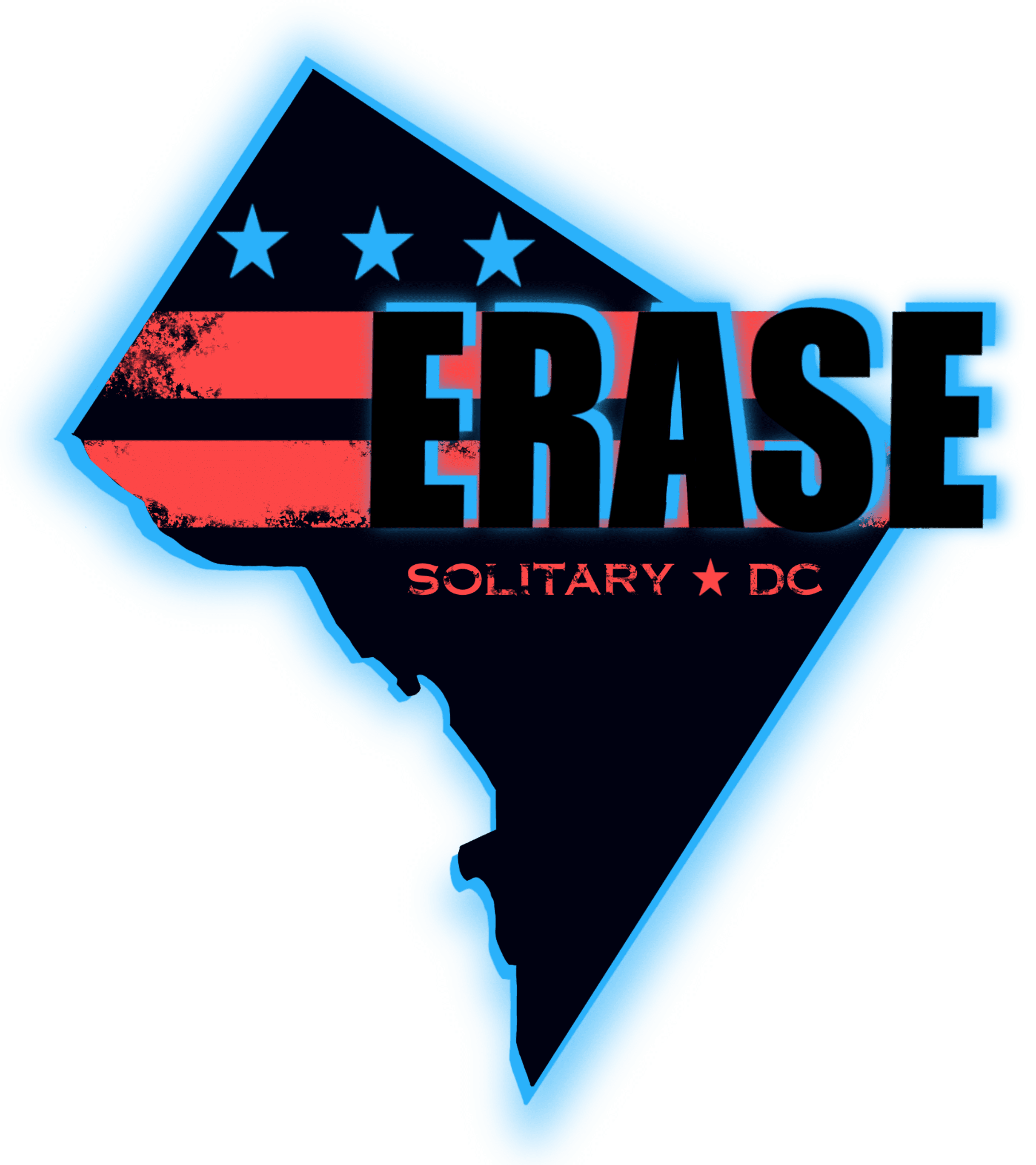Campaign to End Torture In Washington, D.C.
We must end torture in D.C.
Washington, D.C.’s Department of Corrections uses solitary confinement three times more than the national average. The United Nations, through their Standard Minimum Rules for the Treatment of Prisoners, identified prolonged solitary confinement (isolation for longer than 15 days, 22 hours a day) as torture.
On October 18, 2023, D.C. Councilmember Brianne Nadeau introduced the Eliminating Restrictive and Segregated Enclosures (“ERASE”) Solitary Confinement Act of 2023 to put an end to the use of solitary confinement in D.C.’s jails. The Council Committee on the Judiciary and Public Safety now needs to hold a hearing on the bill and move it forward. To join us in pushing for passage of the ERASE bill in Council Period 25, you can:
- learn about the harms of solitary confinement
- support local efforts to end the practice
What is Solitary Confinement?
- Solitary confinement is the practice of isolating and/or confining a person for 22 hours or more per day.
- Isolation is being kept alone with no meaningful human interaction.
- Confinement is restricting a person’s mobility by holding them in a limited physical space.
- Prolonged solitary confinement is holding someone in solitary confinement for more than 15 days at 22 hours a day.
- United States correctional facilities commonly use solitary confinement for many purposes but under a variety of pseudonyms, including administrative segregation, segregated housing units (SHU), restrictive housing, disciplinary segregation, protective custody, medical stay-in-place or lockdown, room confinement, safe cells, or suicide watch.
How is Solitary Confinement Used in D.C.?
- The DOC uses solitary confinement for many purposes but, like many facilities, says it does not use solitary confinement because it uses it under many pseudonyms, including administrative segregation, disciplinary segregation, protective custody, medical stay-in-place, and Safe Cells; for children, the Department of Youth Rehabilitation Services uses Room Confinement.
- A 2015 report documented the DOC’s use of solitary confinement for minor offenses and as retribution when people inside the jails complained of abuse.
- During the height of the COVID-19 pandemic, the DOC held 1,500 people confined in their cells for over 500 days.
- Safe Cells in D.C.’s DOC for people experiencing mental health crises and suicidal ideations are left alone in cells with no mattresses, no pillows, lights on 24 hours a day, no access to writing or reading material, and no running water.
- People receive food through a slot in the door and have “recreation” alone in an empty cage.
- Family visitation and essential programs are severely limited or totally denied.
How is Solitary Confinement Used in D.C.?
- The DOC uses solitary confinement for many purposes but, like many facilities, says it does not use solitary confinement because it uses it under many pseudonyms, including administrative segregation, disciplinary segregation, protective custody, medical stay-in-place, and Safe Cells; for children, the Department of Youth Rehabilitation Services uses Room Confinement.
- A 2015 report documented the DOC’s use of solitary confinement for minor offenses and as retribution when people inside the jails complained of abuse.
- During the height of the COVID-19 pandemic, the DOC held 1,500 people confined in their cells for over 500 days.
- Safe Cells in D.C.’s DOC for people experiencing mental health crises and suicidal ideations are left alone in cells with no mattresses, no pillows, lights on 24 hours a day, no access to writing or reading material, and no running water.
- People receive food through a slot in the door and have “recreation” alone in an empty cage.
- Family visitation and essential programs are severely limited or totally denied.
What is the Unlock the Box D.C. Coalition?
The Unlock the Box DC Coalition is a group of transformative justice advocates working to end the use of solitary confinement in all its forms in the District of Columbia. The DC Coalition is part of the Unlock the Box national campaign to end solitary confinement in the United States. The national campaign includes partners from 19 states and D.C. working to transform incarceration and end the use of solitary confinement nationwide.
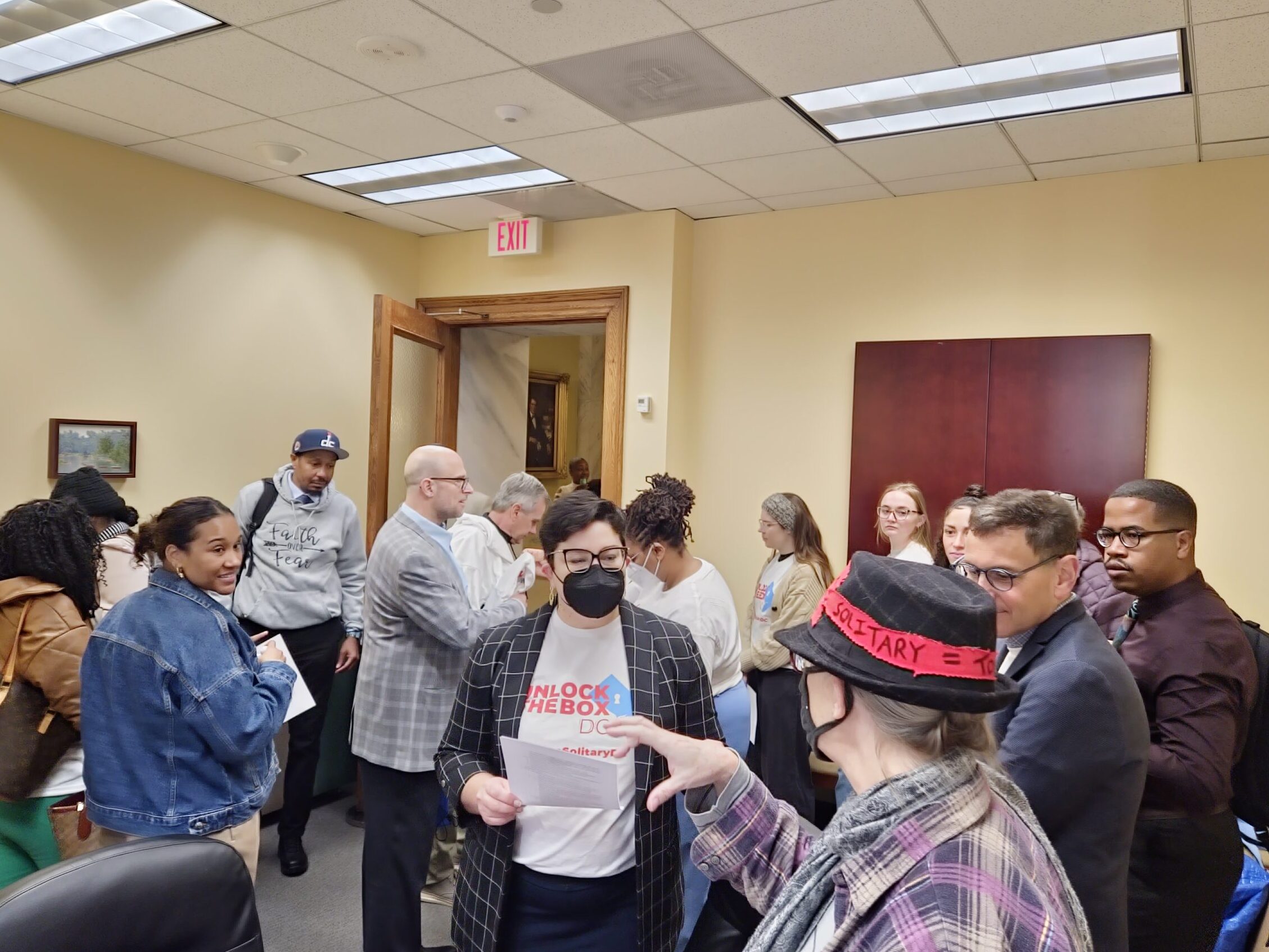
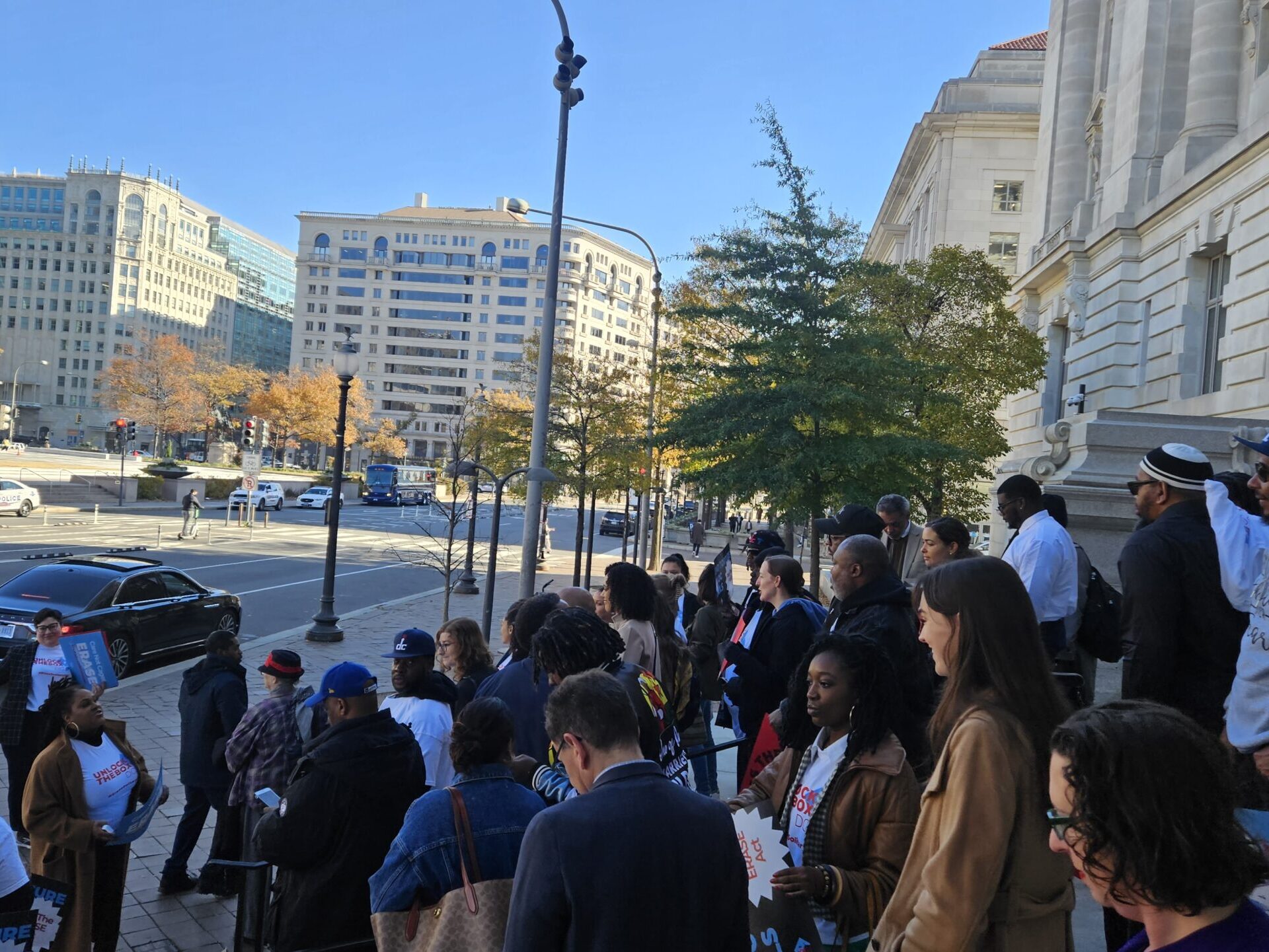
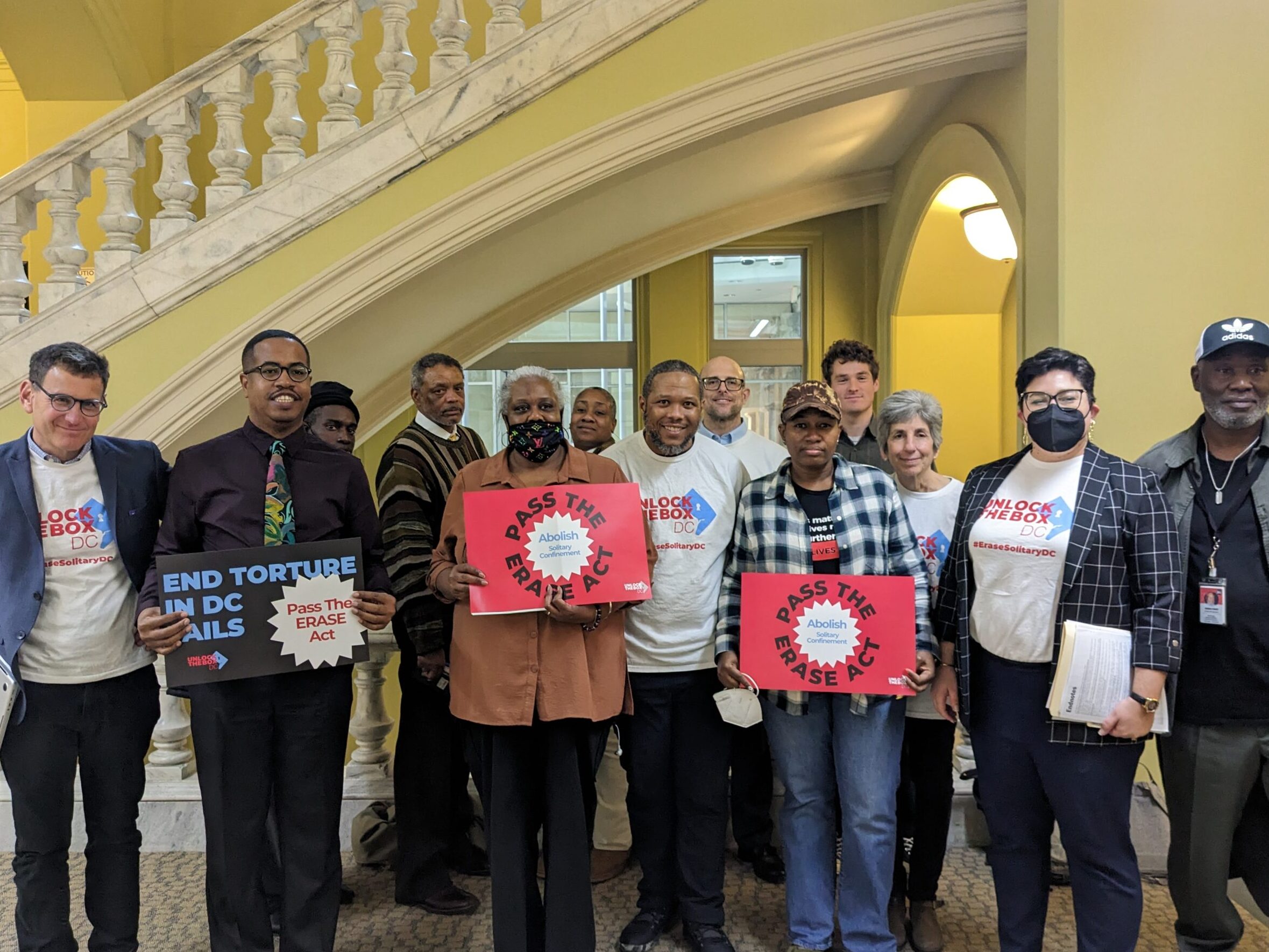
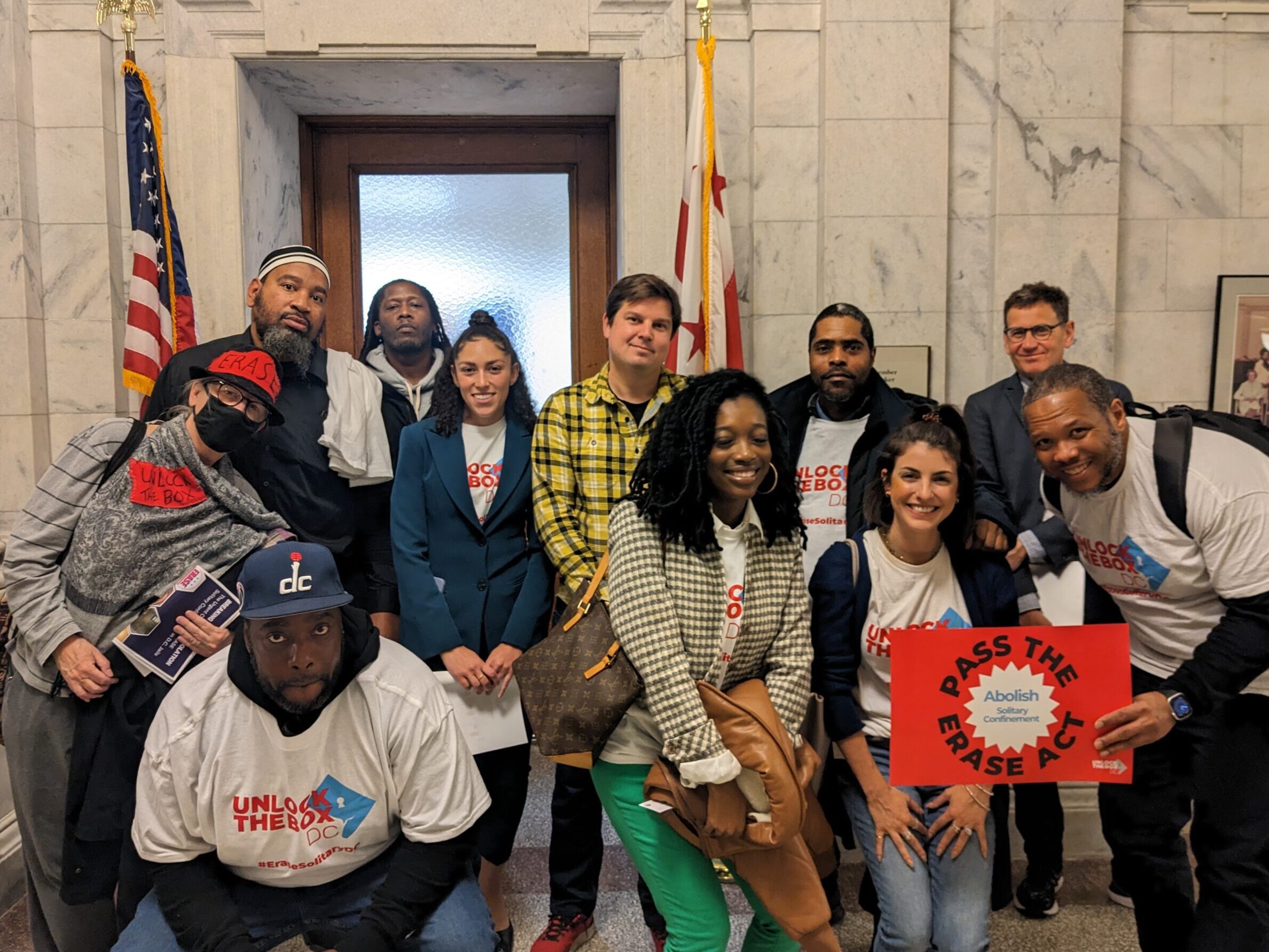
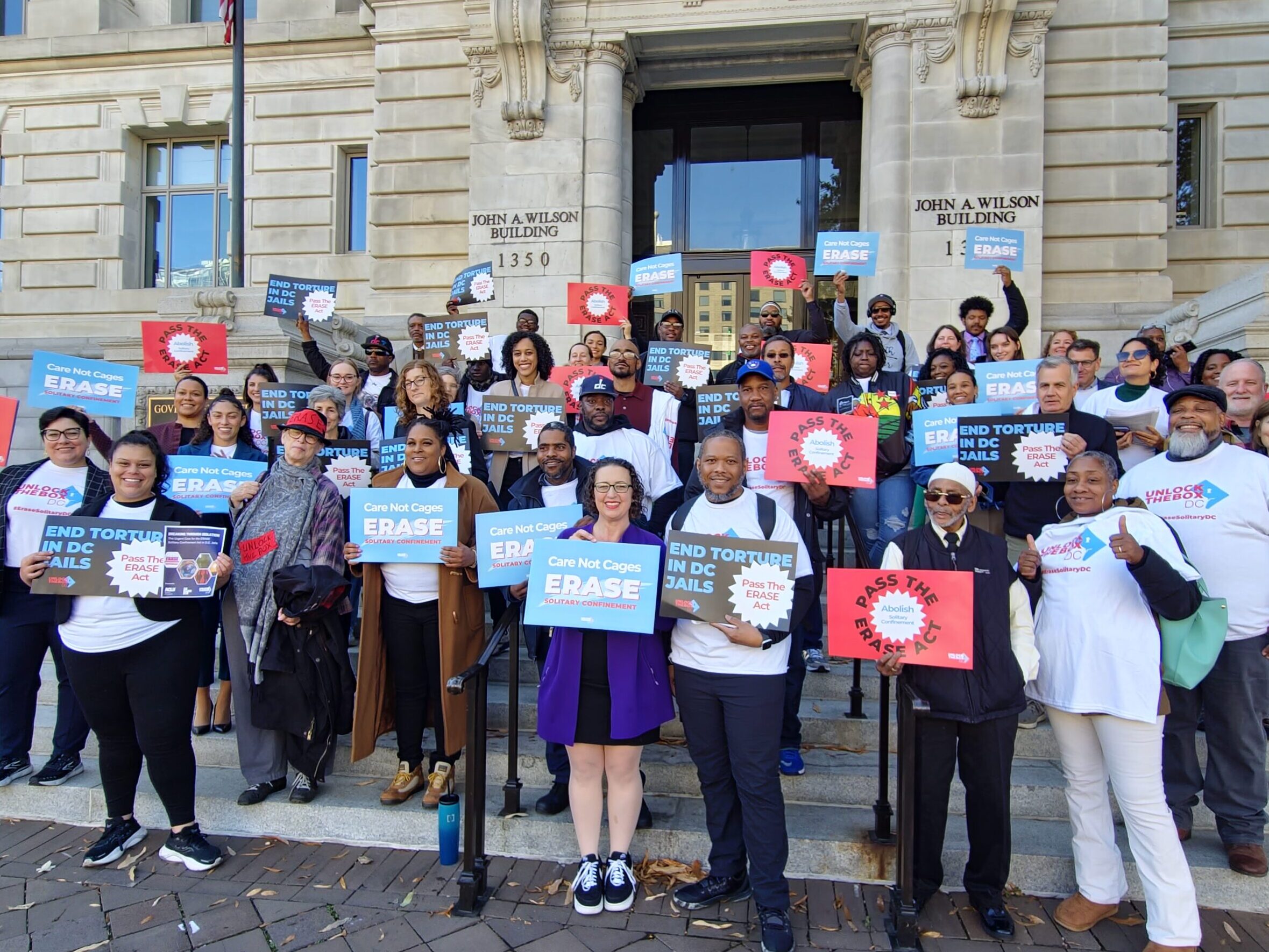
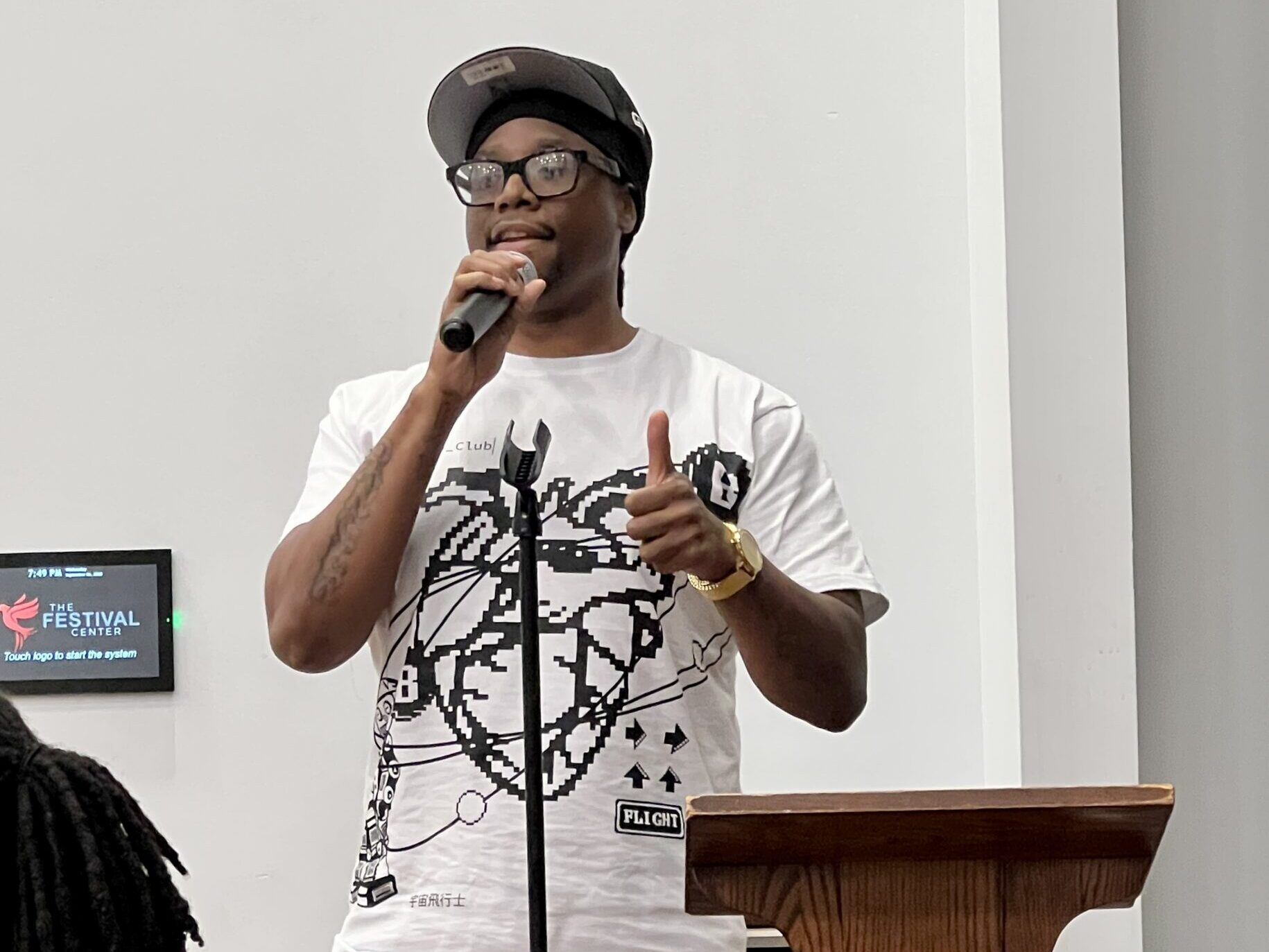
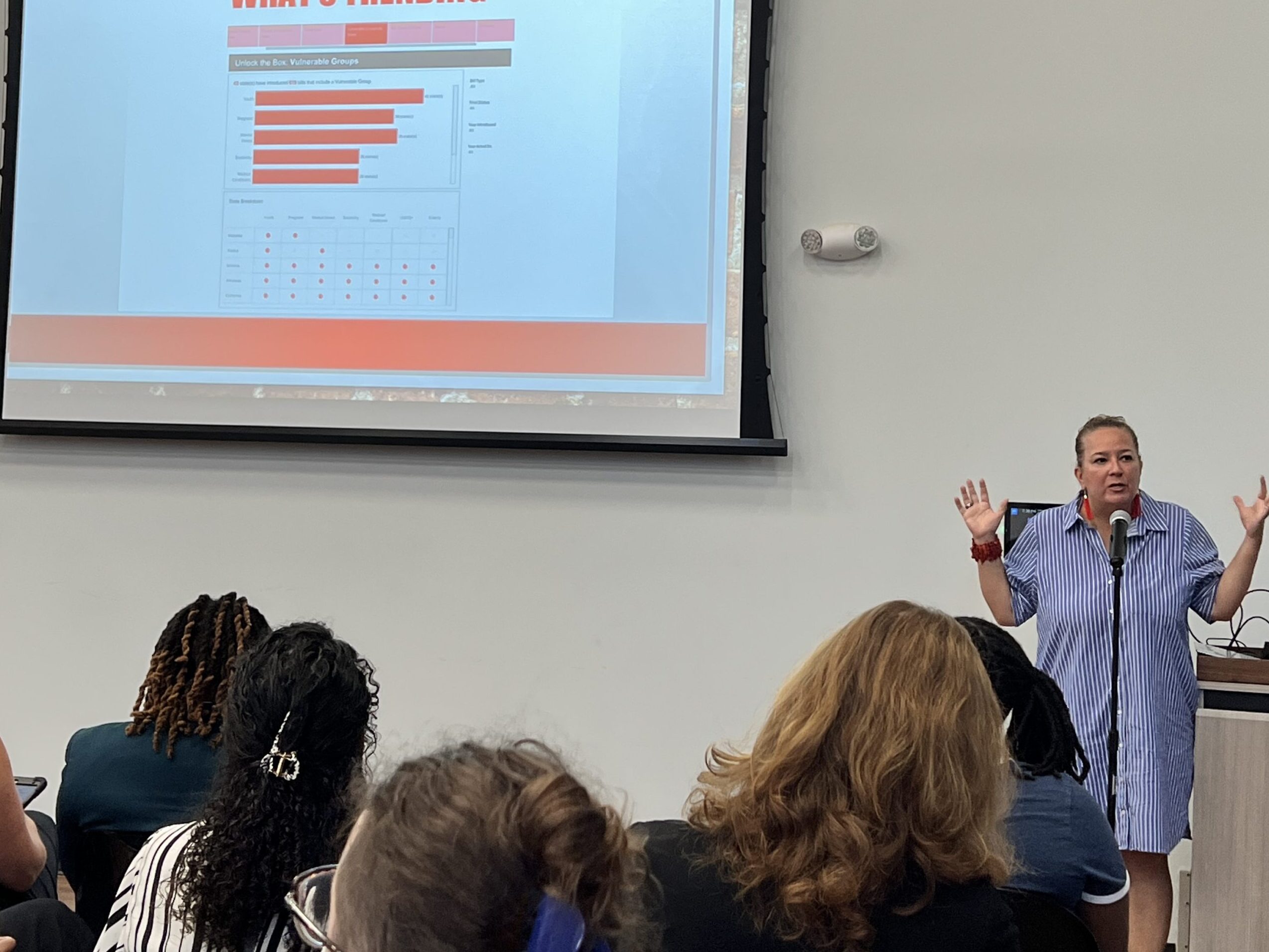
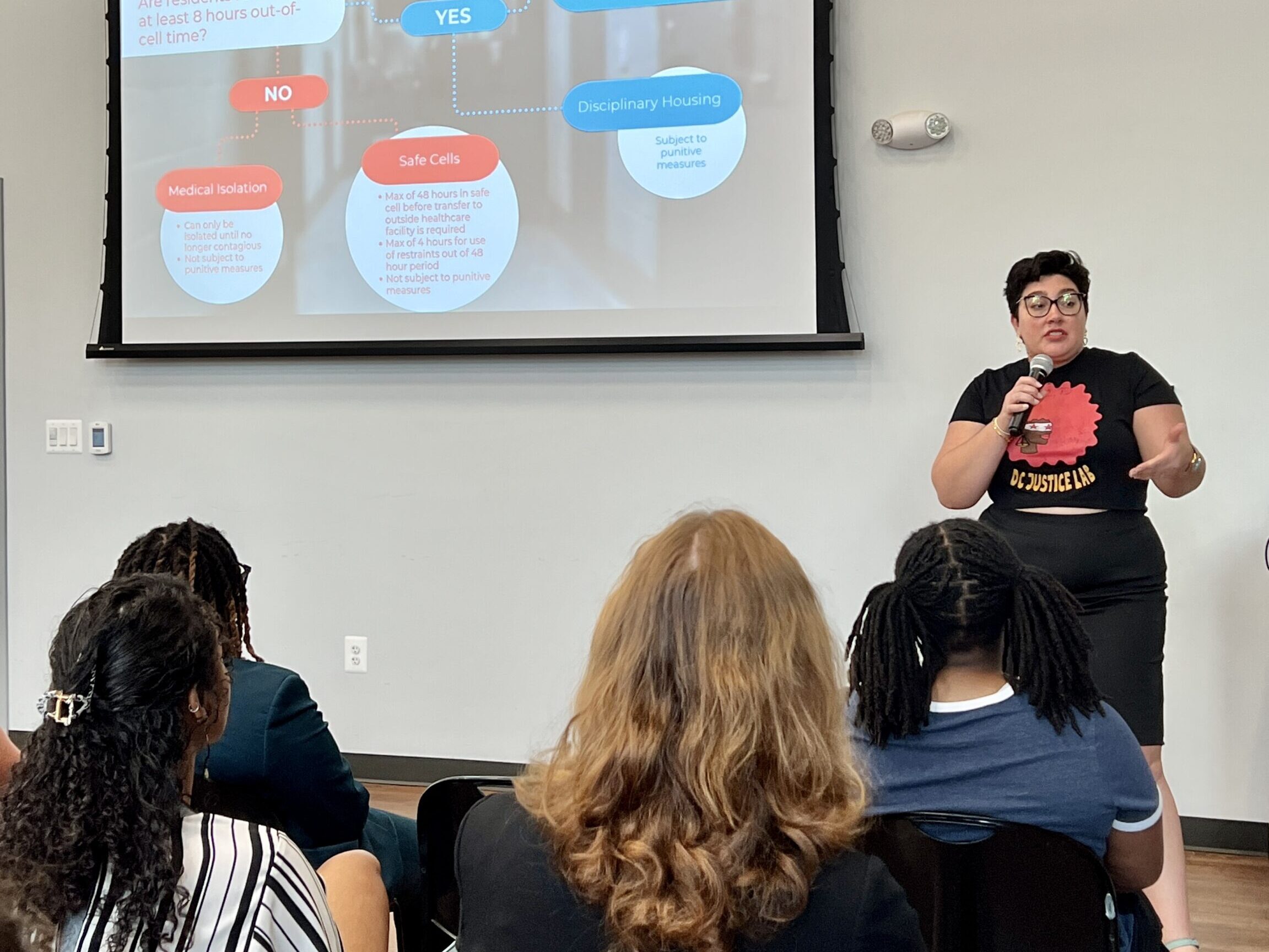
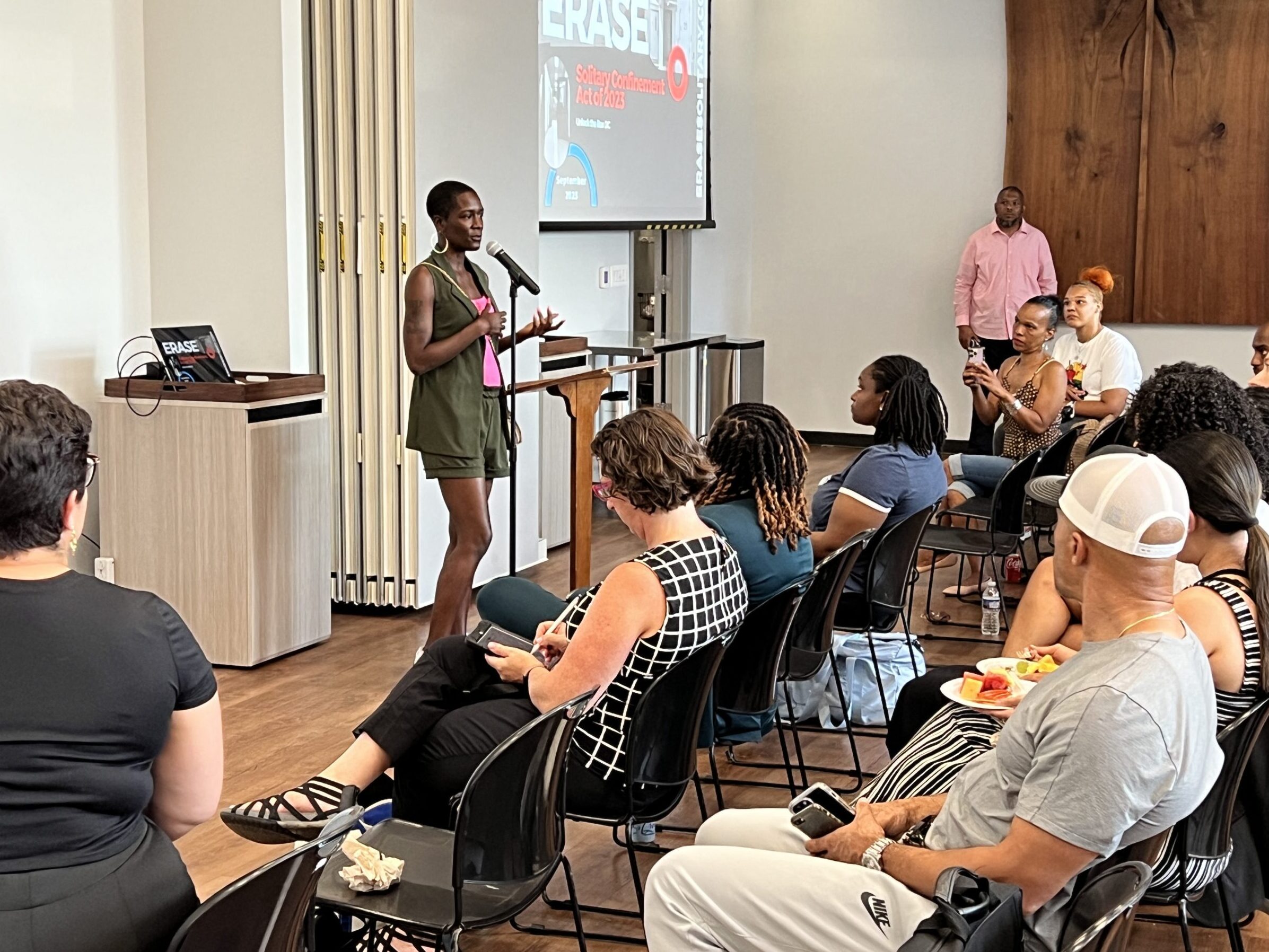
Join Us
- Share your contact information so we can get let you know when it is time to take action
- Tell us your personal experiences with solitary confinement
Watch the Hearing on the 2022 ERASE bill.
In October 2023, the Unlock the Box-DC Coalition rallied in support of the introduction of the 2023 ERASE bill.

Solitary confinement is a cruel, inhumane, and degrading form of punishment and amounts to torture under international law Any amount of time in solitary confinement increases the chances of suicide, opioid addiction, death by homicide, and recidivism upon release.

ACLU-D.C. is committed to ending the practice of solitary confinement because it jeopardizes public safety, wastes taxpayer dollars, and is inhumane and traumatic to the individuals who endure it. Ending solitary confinement demands confronting inequities in the criminal justice system and the racial bias driving them. We look forward to the District’s leadership in ending solitary confinement through the passage of the ERASE Solitary legislation.

Individuals in solitary confinement suffer strikingly consistent psychiatric symptoms, including overwhelming anxiety and depression, hallucinations, severe panic attacks, paranoia, and problems with impulse control. Solitary Confinement takes a particularly severe toll on people with mental illness, potentially inflicting permanent and disabling harm.
Katerina Semyonova, Special Counsel to the Director (Policy and Legislation)
★Public Defender Service for the District of Columbia
Coalition Members
- Washington Lawyers’ Committee for Civil Rights and Urban Affairs
- Justice Policy Institute (JPI)
- National Reentry Network for Returning Citizens (NRNRC)
- Public Defender Service (PDS)
- The Festival Center
- University Legal Services for the District of Columbia (ULS)
- Vera Institute of Justice
- Voices Unbarred
